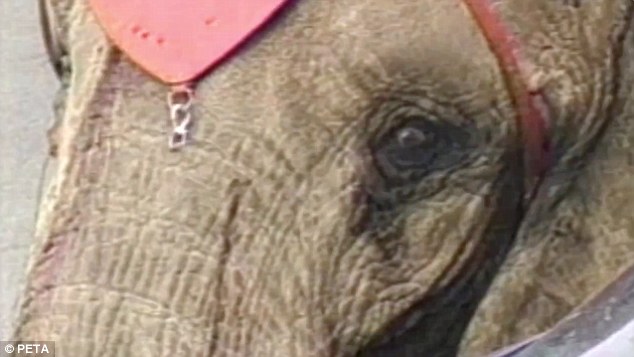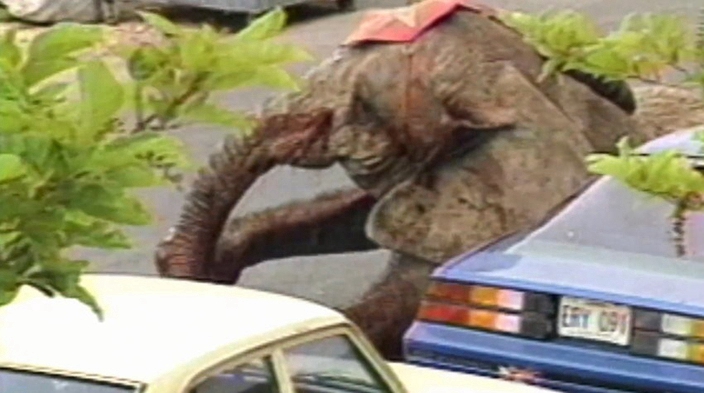
The only freedom she’d known was when she’d escape – and she’d done so twice before. Like all circus elephants, she’d spent her life chained up, transported in trucks and beaten to perform. She escaped the tent and ran through the city streets for a half hour before police officers brought her down in a hail of 86 bullets.

In 1994, for example, a female African elephant named Tyke crushed her trainer to death in front of a circus audience in Honolulu.

Can they remember abuse and pain? Could some elephants even be described as traumatised? There have certainly been episodes that would seem to indicate this. So what are the implications of this? Besides their own particular form of consciousness, elephants have spectacularly good memories. In Indonesia, activists have photographed an elephant in a zoo that lives alone with its feet tied together by a chain. When I ask ecologist and author of Beyond Words: What Animals Think and Feel, Carl Safina, if he believes elephants are intelligent and conscious, he says that there is “zero” evidence that such animals are not conscious, while there is multiple lines of evidence – both physically and behaviourally – that they are.
TYKE THE ELEPHANT KILLS TRAINER TRIAL


“Empathy, enduring family bonds, cooperation, intelligence, long memories, taking care of their environment – to name just a few.” “We see the qualities and characteristics in elephants that we aspire to have ourselves,” says Patricia Sims, the co-founder of World Elephant Day. We are, as a species, generally fascinated by elephants. Watching her now, it’s hard to imagine Flora – a female African elephant, the largest and arguably most regal terrestrial animal on the planet – dressed up in a silly costume performing in a one-elephant act for 18 years. The Elephant Sanctuary spreads over 2,700 rolling acres.Arizona executes inmate for 1984 killing 8-year-ol.


 0 kommentar(er)
0 kommentar(er)
